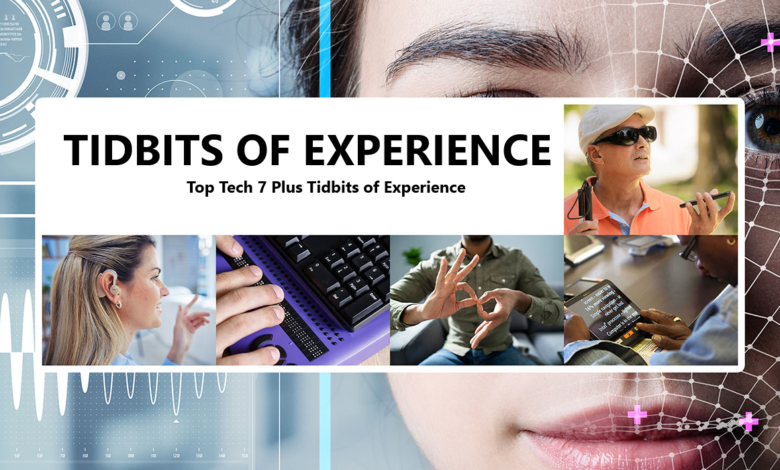Introduction
Life is made up of countless moments—some fleeting, others profound. These moments, when distilled into brief, insightful experiences, are what we often refer to as “tidbits of experience.” These tidbits, though small, can carry significant weight in shaping our personal lives, professional careers, and social interactions. In this article, we will delve deep into the concept of tidbits of experience, exploring their value, how to gather and share them, and their application across different aspects of life.Tidbits of Experience
Understanding Tidbits
What are Tidbits of Experience?
Tidbits of experience are concise, meaningful snippets of knowledge or insight gained from personal or observed experiences. These tidbits are often the result of reflection on everyday occurrences, challenges, or achievements and can provide valuable lessons or reminders.
Tidbits can range from a simple realization during a conversation to profound wisdom gained from years of experience. They are often shared in stories, anecdotes, or advice and can have a lasting impact on those who receive them.
Historical Context and Evolution of Tidbits
The concept of sharing wisdom through brief experiences isn’t new. Throughout history, cultures have passed down knowledge and values through proverbs, parables, and oral traditions. These historical tidbits have been instrumental in shaping societies, guiding behavior, and teaching important life lessons.
In modern times, the digital age has transformed how tidbits are shared. With the advent of social media, blogs, and other online platforms, tidbits of experience can now reach a global audience in an instant, further amplifying their impact.
Types of Tidbits of Experience
Personal Tidbits
Personal tidbits are drawn from individual experiences and often reflect personal growth, self-discovery, or lessons learned from life’s challenges. These might include insights on relationships, self-improvement, or overcoming obstacles.
For example, a person might share how a difficult decision in their past led to unexpected opportunities, offering advice to others facing similar situations.
Professional Tidbits
Professional tidbits are insights gained from experiences in the workplace or career development. These tidbits might involve lessons learned from leadership roles, strategies for effective teamwork, or tips for navigating the complexities of a particular industry.
Sharing these tidbits can be especially valuable in mentoring relationships, where experienced professionals pass on their knowledge to those just starting out.
Social Tidbits
Social tidbits encompass experiences related to interpersonal relationships, community involvement, and social dynamics. These tidbits often highlight the nuances of human interaction, offering advice on building connections, resolving conflicts, or fostering a sense of belonging.
For instance, a tidbit might involve an observation about the importance of active listening in maintaining healthy relationships, a lesson that can be applied in both personal and professional settings.
The Value of Tidbits of Experience
Importance in Personal Growth
Tidbits of experience play a crucial role in personal development. They often encapsulate lessons that encourage introspection, inspire change, or provide guidance during challenging times. By reflecting on and sharing these tidbits, individuals can gain a deeper understanding of themselves and their values.
For example, a simple tidbit like “Patience is key in difficult situations” can serve as a powerful reminder to stay calm and composed during stressful times, ultimately contributing to personal growth.
Impact on Career Development
In the professional world, tidbits of experience can be invaluable. They offer practical advice and insights that can help individuals navigate their careers more effectively. Whether it’s a tip on negotiating a salary, managing a team, or balancing work-life commitments, these tidbits can significantly influence career trajectories.
Mentors and leaders often rely on their accumulated tidbits of experience to guide others, helping them avoid common pitfalls and achieve success more quickly.
Influence in Social Contexts
In social settings, tidbits of experience can enhance relationships and build stronger communities. Sharing experiences fosters connection and understanding, allowing people to relate to one another on a deeper level. Whether it’s a story about overcoming adversity or a humorous anecdote, these tidbits can bring people together and strengthen social bonds.
Moreover, tidbits of experience can promote empathy, as they often reveal the challenges and triumphs others have faced, broadening one’s perspective on life.
Gathering Tidbits of Experience
Observing Daily Life
One of the simplest ways to gather tidbits of experience is by paying close attention to daily life. Everyday moments, whether mundane or extraordinary, can offer valuable insights if observed thoughtfully.
For example, a routine interaction with a coworker might reveal a lesson in patience or communication, while a challenging situation at home might highlight the importance of resilience.
Learning from Others
Another rich source of tidbits of experience is learning from others. By engaging in conversations, reading books, or listening to talks, individuals can absorb the experiences of others and incorporate those lessons into their own lives.
Mentorship, in particular, is a powerful way to gain access to valuable tidbits of experience, as mentors often share the wisdom they’ve accumulated over their careers or personal lives.
Documenting Experiences
Documenting experiences is an effective way to ensure that valuable tidbits aren’t forgotten. Keeping a journal, writing blog posts, or even recording voice notes can help individuals capture their thoughts and reflections, preserving them for future reference.
By regularly reviewing these documented experiences, individuals can identify patterns, recognize growth, and extract meaningful tidbits that can be shared with others.
Sharing Tidbits of Experience
Storytelling and Narrative Techniques
The art of storytelling is a powerful tool for sharing tidbits of experience. By crafting narratives that resonate with others, individuals can convey their insights in a way that is both engaging and memorable.
Using techniques such as vivid descriptions, relatable characters, and a clear message, storytellers can transform a simple tidbit into a compelling story that leaves a lasting impression.
Platforms for Sharing
In the digital age, there are countless platforms available for sharing tidbits of experience. Social media, blogs, podcasts, and video channels are just a few examples of how individuals can reach a wide audience with their insights.
Each platform has its unique strengths. For instance, Twitter is ideal for sharing brief, impactful tidbits, while a blog allows for more in-depth exploration of experiences. Choosing the right platform depends on the nature of the tidbit and the audience one wishes to reach.
Engaging Your Audience
To effectively share tidbits of experience, it’s important to engage the audience. This can be achieved by asking questions, encouraging discussion, and inviting others to share their own experiences.
For example, ending a blog post with a question like “What tidbits of experience have shaped your life?” can prompt readers to reflect on their own experiences and contribute to a broader conversation.
Application in Personal Life
Enhancing Relationships
Tidbits of experience can significantly enhance personal relationships. By sharing experiences and the lessons learned from them, individuals can foster deeper connections and mutual understanding with others.
For instance, sharing a tidbit about a time when patience was crucial in resolving a conflict can provide valuable insight to a friend going through a similar situation, strengthening the bond between them.
Boosting Self-Awareness
Self-awareness is key to personal growth, and tidbits of experience play a vital role in this process. Reflecting on past experiences and the insights gained from them can help individuals better understand their behavior, motivations, and emotions.
For example, recognizing that certain situations trigger stress or anxiety can lead to the development of coping strategies, ultimately boosting self-awareness and emotional intelligence.
Improving Decision-Making
Tidbits of experience can also improve decision-making by providing a repository of knowledge that can be drawn upon in critical moments. When faced with a difficult choice, recalling relevant tidbits can guide individuals toward more informed and thoughtful decisions.
For instance, a tidbit about the importance of considering long-term consequences might help someone weigh the pros and cons more effectively, leading to better outcomes.
Application in Professional Life
Leveraging Tidbits for Career Advancement
In the workplace, tidbits of experience can be powerful tools for career advancement. By applying lessons learned from past experiences, individuals can navigate their careers more strategically and effectively.
For example, a tidbit about the value of networking might encourage someone to attend industry events, leading to new opportunities and career growth.
Tidbits in Leadership
Leadership is another area where tidbits of experience are invaluable. Effective leaders often draw on their experiences to guide their teams, inspire innovation, and overcome challenges.
A leader who shares a tidbit about a past failure and the lessons learned can foster a culture of resilience and continuous improvement within their team.
Networking Opportunities
Networking is a crucial aspect of professional life, and tidbits of experience can play a significant role in building connections. Sharing insights and experiences with others can create opportunities for collaboration, mentorship, and career advancement.
For instance, sharing a tidbit about a successful project during a networking event can spark a conversation that leads to a new business partnership.
Application in Social Life
Connecting with Others
Tidbits of experience are powerful tools for connecting with others on a personal level. Sharing experiences, whether in casual conversations or more formal settings, can help build rapport and deepen relationships.
For example, sharing a tidbit about a recent travel experience might lead to a meaningful conversation with someone who shares similar interests, strengthening the social bond.
Building Social Capital
Social capital refers to the networks of relationships among people who live and work in a particular society, enabling that society to function effectively. Tidbits of experience contribute to building social capital by fostering trust, reciprocity, and a sense of community.
By sharing experiences and insights, individuals can contribute to the collective knowledge and strengthen the social fabric of their communities.
Strengthening Community Ties
Community ties are reinforced when individuals share their experiences and the lessons they’ve learned. Whether it’s through formal events like community meetings or informal gatherings like neighborhood barbecues, tidbits of experience can help bring people together and create a sense of belonging.
For instance, sharing a tidbit about a successful community project can inspire others to get involved, leading to a stronger, more connected community.
Challenges with Tidbits of Experience
Overcoming Biases
One of the challenges with tidbits of experience is overcoming biases. Personal experiences are inherently subjective, and the lessons drawn from them may be influenced by individual perspectives and assumptions.
To mitigate this, it’s important to approach tidbits of experience with an open mind and consider multiple viewpoints. Engaging in discussions with others can also help identify and address potential biases.
Balancing Sharing and Privacy
Another challenge is finding the right balance between sharing tidbits of experience and maintaining privacy. While sharing can be beneficial, it’s important to respect personal boundaries and consider the potential impact of revealing certain experiences.
For example, sharing a tidbit about a sensitive personal issue may require careful consideration of the audience and the context to avoid unintended consequences.
Handling Misinterpretations
Misinterpretations can also arise when sharing tidbits of experience. What one person views as a valuable insight, another might perceive differently, leading to confusion or disagreement.
To minimize the risk of misinterpretation, it’s important to communicate clearly and provide context for the tidbit being shared. Encouraging feedback and discussion can also help clarify any misunderstandings.
Tidbits in the Digital Age
The Role of Social Media
Social media has revolutionized the way tidbits of experience are shared. Platforms like Twitter, Facebook, and Instagram allow individuals to share their insights with a global audience in real-time.
While this increased reach is beneficial, it also comes with challenges, such as the potential for oversharing or the spread of misinformation. It’s important to use social media responsibly and thoughtfully when sharing tidbits of experience.
Digital Storytelling
Digital storytelling is a powerful way to share tidbits of experience in the digital age. By combining text, images, video, and other multimedia elements, individuals can create engaging narratives that resonate with audiences.
For example, a video blog (vlog) that shares a personal journey or a series of tweets recounting a life-changing event can effectively convey the essence of a tidbit of experience.
The Impact of Online Communities
Online communities, such as forums and social networks, provide a space for individuals to share and discuss tidbits of experience with like-minded people. These communities can be valuable sources of support, advice, and inspiration.
However, it’s important to approach online communities with caution, as the anonymity of the internet can sometimes lead to negative interactions. Building positive, respectful relationships within these communities is key to maximizing their benefits.
Tidbits of Experience in Education
Role in Formal Education
In formal education, tidbits of experience can be used to enhance learning by providing real-world examples and practical insights. Teachers and educators often share their experiences to illustrate concepts and make lessons more relatable.
For example, a history teacher might share a personal experience from a trip to a historical site to bring a lesson to life, making it more engaging for students.
Incorporating into Informal Learning
Informal learning, which occurs outside traditional educational settings, is another area where tidbits of experience can be valuable. Whether through mentorship, workshops, or self-directed learning, individuals can benefit from the experiences of others.
For instance, attending a workshop where professionals share their career journeys can provide valuable tidbits that participants can apply in their own lives.
Teaching through Tidbits
Teaching through tidbits involves using brief, impactful experiences to convey important lessons. This approach can be particularly effective in engaging learners and making complex concepts more accessible.
For example, a science teacher might use a tidbit about a failed experiment to teach students about the importance of perseverance and learning from mistakes.
Cultural Perspectives
Tidbits Across Cultures
Tidbits of experience vary widely across cultures, reflecting the unique values, traditions, and experiences of different societies. Understanding these cultural differences is important when sharing and interpreting tidbits.
For example, a tidbit about the importance of family might be expressed differently in a collectivist culture compared to an individualist one, highlighting the cultural context in which the experience occurred.
Cross-Cultural Sharing
Cross-cultural sharing of tidbits can foster greater understanding and appreciation of diversity. By exchanging experiences with people from different cultural backgrounds, individuals can gain new perspectives and insights.
For instance, participating in a cultural exchange program might involve sharing tidbits about daily life, traditions, and values, leading to mutual learning and respect.
Globalization of Tidbits
Globalization has facilitated the spread of tidbits of experience across borders, making it easier for people from different parts of the world to share their insights. This has led to a more interconnected and informed global community.
However, it’s important to be mindful of cultural sensitivity when sharing tidbits in a global context, as what may be considered valuable in one culture might not be perceived the same way in another.
The Future of Tidbits of Experience
Technological Advancements
Advances in technology are likely to continue shaping the way tidbits of experience are shared. Virtual reality, artificial intelligence, and other emerging technologies could offer new ways to capture and convey experiences.
For example, virtual reality could allow individuals to immerse themselves in a simulated experience, gaining insights in a more interactive and engaging way.
The Evolving Nature of Experience
As society evolves, so too does the nature of experience. Changes in work, social dynamics, and technology all contribute to the types of experiences people have and the tidbits they derive from them.
For instance, the rise of remote work has created new experiences related to work-life balance, productivity, and communication, leading to the emergence of new tidbits of experience.
Predictions and Trends
Looking ahead, it’s likely that tidbits of experience will become even more important as people seek to navigate an increasingly complex world. The ability to distill and share valuable insights will be a key skill in both personal and professional contexts.
Trends such as the growing emphasis on lifelong learning and the rise of the gig economy suggest that tidbits of experience will play a central role in helping individuals adapt to changing circumstances.
Case Studies
Personal Anecdotes
Personal anecdotes are a powerful way to illustrate the impact of tidbits of experience. For example, consider the story of an entrepreneur who learned the value of resilience after facing multiple business failures. By sharing this tidbit, they can inspire others to persevere in the face of challenges.
Famous Examples in History
History is full of famous examples of tidbits of experience that have shaped the course of events. For instance, the lessons learned from military strategies, political decisions, or scientific discoveries have been passed down through generations as valuable tidbits.
One such example is the story of Thomas Edison, who famously failed thousands of times before successfully inventing the lightbulb. His tidbit of experience about the importance of persistence continues to inspire inventors and innovators today.
Modern-Day Applications
In the modern world, tidbits of experience continue to play a crucial role in various fields. For example, in the tech industry, the rapid pace of change means that professionals must constantly adapt and learn from their experiences to stay ahead.
A modern-day application might involve a tech entrepreneur sharing a tidbit about the importance of embracing failure as a stepping stone to success, a lesson that resonates with the fast-paced, innovative nature of the industry.
The Psychology Behind Tidbits
How the Brain Processes Experiences
The human brain processes experiences in complex ways, storing and recalling them as memories. Tidbits of experience are often the result of this process, distilled into concise insights that can be easily remembered and shared.
For example, the brain might distill a traumatic experience into a simple lesson, such as “Trust is essential in relationships,” which can then be applied in future situations.
Memory and Recall
Memory and recall play a key role in how tidbits of experience are formed and shared. Experiences that are emotionally charged or particularly significant are more likely to be remembered and recalled as impactful tidbits.
For instance, a memorable conversation with a mentor might be recalled years later as a guiding principle in a moment of decision-making.
Emotional Impact
The emotional impact of an experience often determines how it is processed and whether it becomes a tidbit of experience. Strong emotions, whether positive or negative, can imprint an experience on the brain, making it more likely to be shared as a tidbit.
For example, a deeply moving experience, such as the birth of a child or the loss of a loved one, might lead to the creation of a tidbit that is shared with others as a way of expressing the emotions and lessons learned.
Using Tidbits in Storytelling
Crafting a Compelling Narrative
Crafting a compelling narrative is essential when using tidbits of experience in storytelling. A well-told story can capture the audience’s attention and convey the underlying lesson effectively.
For example, a speaker might use a tidbit about a life-changing event to structure a motivational speech, beginning with the challenges faced, the insights gained, and the ultimate triumph.
Incorporating Personal Insights
Incorporating personal insights into storytelling adds authenticity and depth. When individuals share their unique perspectives, it makes the narrative more relatable and impactful.
For instance, a writer might weave personal tidbits into a memoir, using their experiences to provide readers with a deeper understanding of their journey.
Resonating with Audiences
To resonate with audiences, tidbits of experience should be presented in a way that is both relevant and meaningful. Understanding the audience’s needs, interests, and concerns is key to ensuring that the tidbit makes a lasting impression.
For example, a public health expert might share tidbits about their experiences working in developing countries, focusing on the lessons that are most applicable to the audience’s own challenges.
The Role of Reflection
The Power of Reflection
Reflection is a powerful tool for transforming experiences into meaningful tidbits. By taking the time to think deeply about past events, individuals can extract valuable insights and lessons that might not be immediately apparent.
For example, reflecting on a challenging project might reveal a tidbit about the importance of clear communication, a lesson that can be applied in future endeavors.
Techniques for Reflecting
There are several techniques for reflecting on experiences, including journaling, meditation, and discussion with others. Each method offers a different way of processing experiences and uncovering valuable tidbits.
Journaling, for instance, allows individuals to document their thoughts and feelings, helping them identify patterns and insights that can be distilled into tidbits of experience.
Reflection and Growth
Reflection is closely linked to personal growth. By reflecting on experiences and the tidbits of wisdom they offer, individuals can gain a deeper understanding of themselves and their goals, leading to continuous improvement.
For example, regularly reflecting on one’s interactions with others can lead to improved communication skills and stronger relationships.
Enhancing Communication Skills
Using Tidbits to Improve Communication
Tidbits of experience can be used to enhance communication skills by providing relatable examples and insights that make conversations more engaging and meaningful.
For example, using a tidbit about the importance of empathy in a conversation can help build rapport and foster a more open dialogue.
Active Listening
Active listening is a key component of effective communication, and tidbits of experience can be shared as part of this process. By attentively listening to others and sharing relevant tidbits in response, individuals can demonstrate understanding and empathy.
For instance, during a conversation about stress management, sharing a tidbit about a personal technique that has worked well can offer valuable support and encouragement.
The Art of Conversation
The art of conversation involves skillfully sharing and receiving tidbits of experience in a way that enhances the interaction. This requires not only good communication skills but also an understanding of the social dynamics at play.
For example, in a networking setting, sharing a relevant tidbit about industry trends can keep the conversation flowing and establish common ground with others.
Building a Repository
Creating a Personal Library of Experiences
Building a personal library of experiences involves collecting and organizing tidbits of experience that can be drawn upon in the future. This might include maintaining a journal, creating a digital archive, or even curating a collection of favorite quotes and stories.
For example, a professional might create a digital folder where they store notes and reflections from conferences, meetings, and projects, making it easy to review and share these tidbits later.
Organizing and Categorizing
Organizing and categorizing tidbits of experience is essential for easy access and retrieval. This can be done by grouping tidbits by theme, context, or relevance to different areas of life.
For instance, a teacher might organize their tidbits into categories such as “classroom management,” “student engagement,” and “professional development,” allowing them to quickly find and apply relevant insights.
Long-Term Benefits
The long-term benefits of building a repository of tidbits of experience are significant. Not only does it provide a valuable resource for personal and professional growth, but it also serves as a legacy that can be shared with others.
For example, a business leader might compile a collection of tidbits from their career to pass on to future leaders, ensuring that their insights continue to inspire and guide others.
Conclusion
Tidbits of experience are more than just brief insights; they are powerful tools for personal growth, professional development, and social connection. By gathering, reflecting on, and sharing these tidbits, individuals can enrich their lives and the lives of others. Whether through storytelling, mentoring, or everyday conversations, the impact of these small but meaningful experiences can be profound. Embrace the power of tidbits of experience, and let them guide you on your journey through life.



